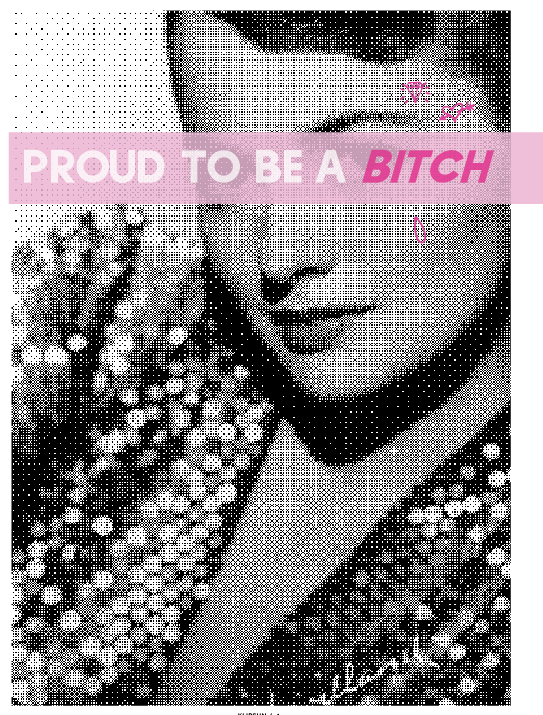Proud to be a Bitch
Reclaiming an offensive term for power, strength and independence
Opinion piece written by Kate Galambos

Nobody wants to be a bitch, right? Well, maybe not anymore. Third-wave feminists have taken back the term “bitch.” Being a bitch now means being strong, independent and fearless, and nobody can tell us differently.
Feminism is a touchy subject. Even after all these years, the word itself still threatens people, regardless of gender. People try to avoid labeling themselves as feminists, presumably due to fear they will be associated with some of the less flattering terms given to feminists. To name a few: man-hater, uptight, over-sensitive, dyke and bitch.
However, young feminists have begun to redefine some of the offensive terms once used against them. Prominent female role models, media sources and women across the United States are redefining “bitch” as a symbol of strength and power.
In 1996, BitchMedia launched the magazine Bitch: Feminist Response to Pop Culture and the company has since grown into a major nonprofit that seeks to support female empowerment. The founders made no mistake in choosing the name “Bitch” for their magazine. “We stand firm in our belief that if we choose to appropriate the word [bitch], it loses its power to hurt us,” says founder Andi Zeisler on the magazine’s website.
The term “bitchin’” is used to describe something or someone as “cool” or “awesome.” Social media is overflowing with memes that promote the term “bitch” as being a good thing.
Wikipedia defines “bitch” first as a female dog and second as a derogatory term for a weak man, but the third entry then reads, “The range of meanings has expanded in modern usage. In a feminist context, it can indicate a strong or assertive woman.” While Wikipedia’s definitions may not be considered scholarly, the pages reflect people’s everyday use of language.
Regardless of the delivery, the evolving definition is moving toward a similar message. Bitches are strong. Bitches are to be taken seriously.
Comedian and writer Tina Fey has proudly proclaimed herself a bitch. In 2008, Fey told the world, “bitch is the new black,” in the SNL sketch “Weekend Update.” In reference to the public’s negative perception of the then Secretary of State Hillary Clinton in 2008, Fey stood by Clinton’s competency and refused to accept gender stereotypes surrounding strong women.
“Maybe what bothers me the most is that people say that Hillary is a bitch,” Fey said. “Let me say something about that — yeah she is.”
“And so am I and so is this one,” pointing to Amy Poehler. “Know what? Bitches get stuff done.”
Fey and Poehler were celebrated even more for their unwavering feminism after the sketch and eight years later, it continues to infect the internet.
Prominent women — like Poehler and Fey — do more than just get the message out there; they make it okay, even cool, to be loud and proud to be a bitch. In a time when women continue to be discounted for raising their voices, bad bitches like Fey show girls that they have the right to demand respect.
Regardless of your opinion on this shift of the term “bitch,” it is an impressive display of how language is a powerful tool. Language is entirely subjective. A word acts only as a symbol for an idea that represents something more tangible. Bitch can mean whatever we want it to, so why shouldn’t we make it positive?
The first wave of feminists pushed for our right to vote and for inclusion into the public sphere in the early 19th century. Women of the ’60s and ’70s made it clear that “personal is political.” Thank the second-wave feminists for the Equal Pay Act, Roe v. Wade, Title IX and countless other legislation.
Women fight to change stereotypes, earn respect and make their voices heard. We’ve always taken back what is rightfully ours, so let’s take back bitch. Let’s get stuff done.
Today, millennial, third-wave feminists are looking at power structures in the broadest and most intersectional perspective yet. Language is a huge part of the patriarchy that plagues our institutions and cultural norms. Through language, we conceptualize and educate each member of society. If we can change our language, we will, without a doubt, change our culture.
Bitch is only the beginning.
